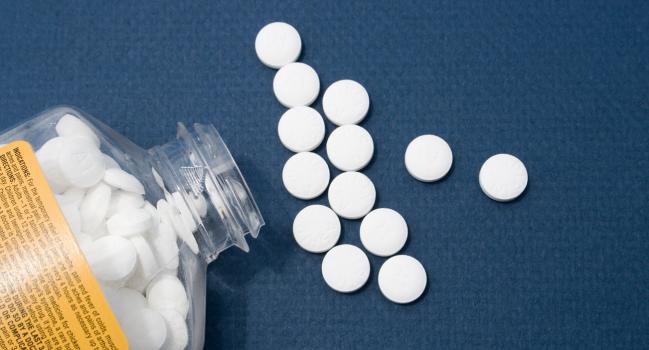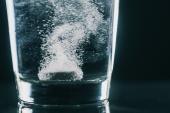With Focus on Stroke, Low-Dose Aspirin Still No Good for Primary Prevention
This secondary ASPREE analysis affirms that the risks outweigh any potential benefits in healthy older adults.

With the aim of stroke prevention, older adults free of cardiovascular disease do not have anything to gain from taking low-dose aspirin on a daily basis and the risks outweigh any potential benefit, according to a secondary analysis of the ASPREE trial.
The results, in line with the primary results of the trial published nearly 5 years ago, show a significant increase in overall intracranial bleeding, including hemorrhagic stroke, that is not offset by a reduction in ischemic stroke, Geoffrey Cloud, MBBS (Monash University, Melbourne, Australia), and colleagues report in a study published online today in JAMA Network Open.
“These findings suggest that low-dose aspirin may have no role for the primary prevention of stroke and that caution should be taken with use of aspirin in older persons prone to head trauma (eg, from falls),” they write.
The main ASPREE results played a major role—along with other trials like ARRIVE and ASCEND—in steering the medical community away from the use of aspirin for primary prevention of cardiovascular events. Practice guidelines from the US and Europe, and the US Food and Drug Administration, have all come out against the routine use of low-dose aspirin for this purpose. And, most recently, the US Preventive Services Task Force (USPSTF) recommended against starting low-dose aspirin for primary prevention of CVD in adults 60 and older (with an individualized decision recommended for those ages 40 to 59 with a 10-year CVD risk of at least 10%).
Cloud et al say these new findings focused on stroke provide additional support to the USPSTF recommendations, and Shlee Song, MD (Cedars-Sinai Medical Center, Los Angeles, CA), speaking with TCTMD, agreed.
In addition, Song underscored the distinction between primary and secondary prevention, noting that there was some confusion among patients when the ASPREE results first came out, with some of those with a history of stroke or MI stopping their aspirin.
That’s not the population these results should be applied to, she stressed. The message, Song said, is that for older adults who are healthy “taking an aspirin a day can cause harm.”
Stroke in ASPREE
Much of the evidence around the use of low-dose aspirin has come from studies of populations with mean ages below 70 years, the investigators note. They indicate that it’s important to also study older individuals, who are more susceptible to hemorrhage and to falls and other accidents, which could affect the balance between the benefits and harms of antiplatelet therapies.
ASPREE, conducted in Australia and the US, is the largest randomized trial of low-dose aspirin geared toward an older age group. The trial randomized 19,114 older adults free from symptomatic CVD (median age 74 years; 56.4% women) to enteric-coated aspirin 100-mg daily or placebo, showing that after a median follow-up of 4.7 years, there was no difference in the risk of CV events but there were significant increases in major bleeding and mortality with aspirin.
The secondary analysis performed by Cloud et al focuses on stroke and intracranial bleeding, providing a similar picture in terms of the balance between risks and benefits.
Low-dose aspirin didn’t reduce the risk of first strokes of any type (4.6% vs 4.7%; HR 0.97; 95% CI 0.79-1.18) or ischemic strokes (1.5% vs 1.7%; HR 0.89; 95% CI 0.71-1.11).
For bleeding, there were no differences in risks of hemorrhagic stroke or nonstroke intracranial bleeding as individual endpoints. When combined, however, there was a significant increase in overall intracranial bleeding in the aspirin arm (1.1% vs 0.8%; HR 1.38; 95% CI 1.03-1.84).
These findings were consistent across subgroups defined by age, sex, smoking, diabetes, dyslipidemia, frailty status, hypertension, and country.
Absolute numbers of both stroke and bleeding events were small. The researchers calculated that for every 1,000 individuals taking low-dose aspirin for 5 years, there would be 2.5 fewer ischemic strokes at the cost of 3.5 more intracranial hemorrhages based on these results.
“Clinicians should be aware that among older individuals prone to falls, risks of intracerebral bleeding with aspirin may be greater than was apparent in this trial,” Cloud et al write.
Moreover, they say, “Our results are also cautionary with regard to the inclusion of aspirin in a polypill to prevent cardiovascular disease in healthy older adults. Studies of newer antiplatelet therapies, such as clopidogrel, ticagrelor, or prasugrel, have not been undertaken in a primary prevention setting and should not yet be considered as alternatives to aspirin for this indication.”
Song had a message for patients who might be thinking about taking low-dose aspirin on a daily basis to prevent a first CV event: “No, you should not do that. . . . It’s a powerful drug that can increase your bleed risk.”
And for those who have already had an MI or stroke, she said, “If you’ve had those conditions and you’re worried about aspirin and increased bleed risk, consult with your healthcare provider before making any changes to your medication regimen, . . . because they can help clarify all the noise out there.”
Todd Neale is the Associate News Editor for TCTMD and a Senior Medical Journalist. He got his start in journalism at …
Read Full BioSources
Cloud GC, Williamson JD, Thao LTP, et al. Low-dose aspirin and the risk of stroke and intracerebral bleeding in healthy older people: secondary analysis of a randomized clinical trial. JAMA Netw Open. 2023;6(7):e2325803.
Disclosures
- ASPREE was funded by the National Institute on Aging and the National Cancer Institute in the US and by the National Health and Medical Research Council, Monash University, and the Victorian Cancer Agency in Australia.
- Cloud and Song report no relevant conflicts of interest.





Comments